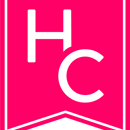With graduation fast approaching, it is hard to believe that many college students in their final year will be done in just a matter of 3 months. Crunch time is well underway, so it is no surprise that job hunting has probably been put on the back burner. However, now is the perfect time to polish your professional appearance and hit the ground running. It is never too early to start applying for jobs even if there are a few months before graduation. You don’t have to surf LinkedIn or Indeed every waking hour for the next 3 months, but to apply for something prospective is never a bad idea.
“But Olivia where do I even begin?”
Well, I am so glad you asked this important question. Job hunting can be overwhelming and feel like an endless cycle, but we can do a few things that can reduce the stress and make us feel professionally confident. Unfortunately, sending a potential employer a note that says “please hire me” isn’t quite appropriate. In this case, I am just going to run through a few recommendations that a college student can strive to accomplish. These suggestions serve to help you stand out to a potential employer in the vast sea of applicants. Job searching can be daunting and cause plenty of headaches, but it doesn’t always have to be.
CLEAN UP YOUR RESUME!!
Sorry, didn’t mean for that statement to be so intense…but seriously clean up your resume.
A resume you whipped up in 5 minutes probably isn’t going to cut it. The more time you take to make sure every aspect of your resume is well thought out and perfected, the more someone reading it is going to notice. Here is what you can do:
- Don’t list EVERY single place you were employed at. If you have been employed at 10 different places since the age of 16, this doesn’t mean you need to list all 10. More than likely, an employer isn’t impressed that you worked at “Hot Topic” for 3 months when you were 18. Try and list a job you worked at the longest. This shows the hiring manager that you have a good track record of sticking-it-out and that you aren’t just going to up-and-quit one day. Also list the current or most recent place of employment. Hirers like to know what the last place of employment was and even sometimes ask interview questions based off of that.
- Less is more! Just because you have enough content to fill out 3 pages, doesn’t mean you should. Remember, people that are in charge of the hiring process go through hundreds of these a day. Try and keep it to 1 page or 1 ½ pages at the most. This makes it easier to read and less overwhelming.
- Keep it simple! This means headers for each section and bullet points. Headers make each section of your resume easy to navigate and bullet points makes things more concise. Put yourself in an employer’s shoes, if you take one look at your resume and wouldn’t want to read it, neither would they.
Cover Letter! Cover Letter! Cover Letter!
Now I am someone who was guilty of not having a cover letter for the longest time. I did not realize how important they are and how big of an impact they can make whether you get called in for an interview or not. Think of it this way: if a person did not have any photos in their bio on Tinder, would you still swipe right on that person? Chances are, probably not. Think of a cover letter as your pictures in your bio on Tinder or Bumble or whatever apps you use nowadays. Your cover letter provides the employer a “picture” of who you are as a person. It gives them a quick glimpse into your personality more so than a standard resume could.
“But what do I include in a cover letter?”
Wow! What another great question! For cover letters, there are 3 simple aspects to cover:
- Who you are -Senior in college? Current job status?
- What you’ve done -Projects? Extracurriculars?
- What you can do -This is where you list your skills.
Don’t forget after you cover these 3 areas, to thank them for their time and provide contact information. Still having trouble? There are many websites (Resume Genius, for example) that will generate a cover letter for you. Just answer a few basic questions, and it will do the rest. I, however, would not copy and paste since the websites that generate these cover letters are very vague and basic. This is still a great way to get ideas if you are having trouble with what exactly to write, nonetheless.
Manage Your Social Profiles
While you may think posting those wild spring break photos of you at Padre with your eyes clearly half open…for no obvious reason…seems like a great idea at the moment, hold off. Imagine if someone new to you adds you on Instagram, what’s the first thing you do? You check out the person’s profile. This is what potential employers do. You’re a person who figuratively “added them” (in this case applied for a position at their company) and now they’re going to check you out. Companies won’t be afraid to check your Instagram, Twitter, or Facebook. This gives them a more intimate glimpse into who you are socially and personally beyond your resume. Make sure your social media is clean and appropriate, or if you’re still very worried, private/locked. The more professional you look on all platforms, the more likely you’ll make a good impression.
LinkedIn is an Underrated Tool
I also was guilty of not having a LinkedIn for the longest time and didn’t realize how much I was missing out on until I got an account. LinkedIn hosts over 500 million professional profiles, giving you endless exposure to a wide range of job opportunities.
There are many reasons you should get on the LinkedIn train but here are 3 main reasons you should:
- The job board is never ending! Just tell LinkedIn what type of job you are looking for, how many hours you plan to work, expertise level, and location. It will then generate jobs that fit that criteria. Another nice aspect is that if LinkedIn finds a job that may fit some of your qualifications, it will send you an alert that there may be a job for you.
- This is also a great tool for researching other companies. More companies are now starting to post to their LinkedIn more than their Facebooks or even their websites. Here is where you can learn more about the overall company culture and values. This is something that can be hard to gauge on other media sites, but LinkedIn makes it possible.
- Build your network. Connect with people you know. Who knows, one of your connections may lead you to a potential job!
So, while you prepare to turn your tassels at graduation, don’t forget to turn in your resume! Classes and midterms become hectic, I agree, but it is always a good idea to plan for your future as early as possible. Cleaning up your resume, building a cover letter, managing your social media, and utilizing LinkedIn will give you the head start you need in the race for postgrad employment!







